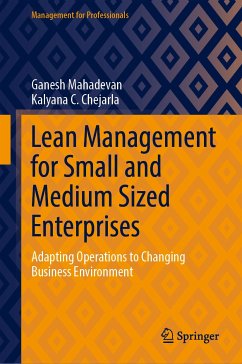Diverse situations such as meeting the demand fluctuations, designing a facility, or improving profit margin etc. are included in the case studies from multiple sectors, to ensure that every reader finds a situation similar to their organizational situation. While the publicly available literature on lean offers a large collection of tools and techniques, given each organization's unique context, the choice of the right sequence of tools differ. The book offers guidelines in terms of which solutions work in which context, backed by real-cases, which is a big help to the resource constrained SMEs. This book is an equally good resource for the organizations that have already implemented lean, as it provides realistic pointers about sustaining, tackling supply chain uncertainties and going beyond Lean by integrating emerging technologies and management principles. It is an excellent resource for students and researchers studying this area and also for corporates, professionals and industry watchers.
Dieser Download kann aus rechtlichen Gründen nur mit Rechnungsadresse in A, B, BG, CY, CZ, D, DK, EW, E, FIN, F, GR, HR, H, IRL, I, LT, L, LR, M, NL, PL, P, R, S, SLO, SK ausgeliefert werden.









